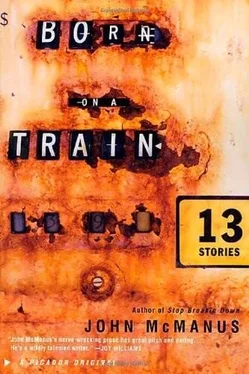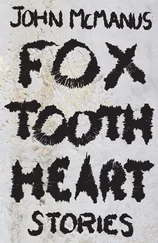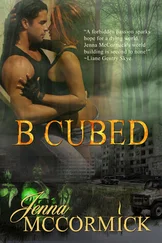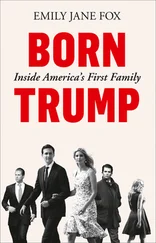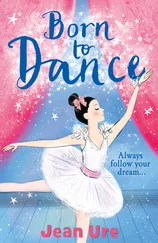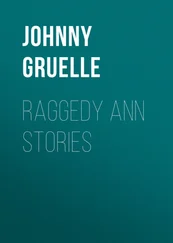Check and see if the minimart sells them, Mama said.
Right now?
Tomorrow.
Yes, ma’am.
Ma’am, she said. I never taught you that. It’s not even a word.
It comes from school, said Jason.
Like lice, said Mama. Her smile was gone now. Did you even think of me at all?
Jason nodded. I thought about the milk.
I’m not the milk, said Mama. I’m a completely different thing.
You were the reason I went there.
No, she said and shook her head, you’d get it anyways. Just to get out of this house. She talked like she was pressing the words out of her intestine. Jason remembered Shawn’s arms lifting crates of milk, and he turned away so Mama wouldn’t know how he wished those arms would squeeze him, but it was too late; she rubbed the birthmark bird that watched him from the back of her neck, its marbly eyes the ones that saw into his head where bodies writhed beneath the setting sun. The only man who’ll ever touch you again is the coroner, she said, but Jason was too far away to answer. He wondered if he had a birthmark too. At the bathroom sink he cut his hair so short he looked like a boy again, but there was nothing on his scalp. No one even saw it but the glass. He didn’t know if a mirror’s opposite was cold or warm, so he imagined the frigid metal crane touching his one side while Shawn’s flesh warmed his other, whipping him with a black belt that fueled the breeze above the quarry, while at the house Mama danced so cheerfully as the night kept dying until the moon was down so no light showed what he’d created.
I don’t want you to go back to school, she said.
It’s still three months away.
I get so lonely.
There’s the TV, said Jason, but then Mama busted it with a pretend kick of her leg. Jason tried to think of something good to say, but she made it hard to stay for long inside the world. He poured her another glass of milk. Come here and put my legs up for me, she said. He wanted to shave them for her again, but she was too stubborn to let him. Jason didn’t understand why. He tried to remember the last time he’d said no to anything. Whatever Jason wanted, Shawn wanted the same thing backwards. It was incredible, but he watched the sky for helicopters, wheeled machines, because he knew there were people who didn’t understand.
Stop that, said Mama. It’s like you’re not even in the house.
You’re the one that gave it to me, Jason said. He saw in every impatient sip of milk how Mama wanted the sip to be finished, how liquid and glass and the air made her so mad she could almost move her toes again.
I mean thinking in general.
I’m thinking about getting a job down at the station.
I don’t want you working, she said immediately.
For money to fix the car.
Money won’t fix that car.
We could go places again when I’m sixteen.
Gas fumes give you cancer.
I’d be inside the store, he said.
Cancer goes through walls.
I wouldn’t get it till I’m old.
You’d never be here, she said. You wouldn’t work the puzzles anymore.
That’s not true, said Jason. He found a thousand-piece puzzle in the closet and dumped its pieces out and brushed the jigsaw dust onto the floor. There, he said, and he pushed edge pieces toward Mama, who wheeled herself up to the table and reached for piles Jason made of clouds, of purple lupines on a lakeshore. He worked on a steeple to divide the hole in the sky into two parts. At every piece he fit he tapped his finger twice, and Mama fell asleep. Her head leaned limply forward like a jack-in-the-box. The time was nine and ten and nearly midnight. Jason went outside and tried to break a bourbon bottle’s neck against the woodpile, but it just bounced off the wood. He smashed it on the concrete gutter drain. He cut the stalks of eight white irises blooming in a bed of weeds beneath the hickory. With his shirt off he wet his hands in the birdbath and rubbed his chest so that the cool teeth of June night air scraped water off his flesh, the back door open to the breeze, and Mama woke up at twelve-nineteen, like always; she was thirty. She rubbed sleep from her eyes and said, What’s this.
They’re for your birthday, Jason said.
Those were the only flowers in the yard.
They’re still in the yard. They’re just inside instead.
Mama began to wheel herself back and forth. Dead, too.
Not yet, he said. There’s water.
Why do you treat me so nice? she said.
It’s not nice, he said; it’s just normal.
I haven’t done anything nice for you.
What’s the word for just normal? Jason started to ask, but he stepped backwards when she trembled. He wanted to cover his face and run. She spoke so slowly.
I was having the most terrible dream.
Why was it terrible? said Jason.
The flowers. The white things. Sweat was on her face. Mucus moved audibly in her throat. Why are you here? she said and spun the vase. It didn’t fall. Flowers weren’t what people liked.
Just say I’m just an old bitch like in the dream.
Jason shook his head. It helped his heart slow down to close his eyes.
Don’t you forget that word, said Mama, wheeling into the bedroom. You’ll need it if you ever wanna be a man in this town.
Jason wondered what town she meant. He hadn’t seen one all summer. He wished Mama didn’t even like him, and he’d keep walking one direction away from home. If he felt like crying, he’d just cry. He hadn’t in three years, not since the green diary, the one he’d burned with the leaves last fall.
That night at the quarry Shawn tied a hangman’s noose to the oak and placed a cinder block upright. Jason’s stomach rose and fell at the touch of strange hands, the smell of motor oil. I’m sorry I ran away, he said softly, and he put his head in the loop. It calmed him to wait for Shawn to kick the block away, because they’d never have to grow old together. They’d never see the ugliness in each other.
But what if that’s all you remember about me?
Jason shook off motion sickness when he looked at Mama’s voice.
That I hate flowers. And I don’t even hate flowers.
Jason saw nightbirds flying too slowly to form jet trails.
I don’t even know what I hate, said Mama. It’s all out in the world. She wheeled herself to the kitchen again and labored at the puzzle until the Church of the Good Shepherd was complete except for one missing piece. I feel wrong, she said. You’re old enough. You know that.
Jason removed edge pieces from the puzzle and reattached them.
Don’t you start to feel wrong too.
I feel okay, said Jason.
I never should have tried to hook our minds up.
That’s just a game, said Jason.
The walking times. The roots. It was so selfish.
But nothing happened.
I felt a twitch.
I wasn’t even thinking about you.
You got infected, she said. It’s like cancer, but in your mind.
I don’t have any cancer in my mind.
I know how you look at that grocery boy.
How do—
Ronnie.
Ronnie? said Jason. But he’s ugly.
Mama stared at him like an ulcer was eating her stomach, and he knew he’d said the wrong thing. An ulcer was someone’s fault. He wasn’t ashamed of what he and Shawn had done together, but he understood the need to hide their actions. It had been shortsighted to let Shawn brand him with his black initials like a dog tag. He wanted to get scared and make everything burn, but it wasn’t a year yet, so he lay awake and counted stars and shaped them into profane spires, distant furculae of the night. At the quarry Shawn swung from vines whose handles grew like human toes, but cold, and the animals and squirrels were his friends; when he quacked they said quack quack. When he hooed they hoo-hooed too. Mama snored just once every thirty seconds, but the noises pierced the night like foghorns. Jason tried to think what dream could be catching fire like that. What if she choked on the snores? He entered her room and unfolded her wheelchair and sat down to guard her; he wasn’t tired. The crescent moon was rising. Fireflies that lit the field outside her window were the only darknesses in a ruthless swell of light that closed in on him and Mama together like a choke collar.
Читать дальше
